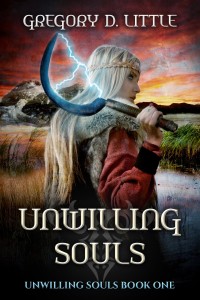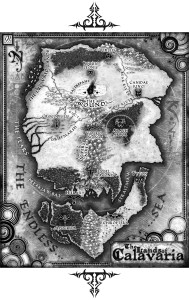 Okay, so that’s not really true. You’ll never run out of stuff to learn as a writer, whether in the traditional or independent realms. I just thought it was a clever title. I apologize if it made you roll your eyes.
Okay, so that’s not really true. You’ll never run out of stuff to learn as a writer, whether in the traditional or independent realms. I just thought it was a clever title. I apologize if it made you roll your eyes.
Despite my exaggeration, I don’t think I exaggerate by saying I learned as much about the publishing process this year as I ever have, maybe in all the years before put together. When you publish a book yourself, and you’re trying to do it properly, you have to.
I could probably write ten posts on this topic from my experience with Unwilling Souls, but I’ll try and keep it to the big stuff. For instance, did you know that when you’re publishing a print book, you have to set the margins differently for left-hand pages and right-hand pages so words don’t get trapped illegibly down the spine of the book? I didn’t, but thankfully I hired someone who did to help me.
I already knew that the different e-book vendors required different file types. Turns out they also require different sizes and resolutions for the cover image. More than that, the colors of the print cover have to be subtly altered to account for changes that occur when transitioning from digital to print. The format of the image is also strange and counter-intuitive for print. Who knew? My cover artist, thankfu lly.
lly.
When I drew up my map to be transformed into a digital image for the book by my map artist, I did so on 8.5″x 11″ paper, months before I’d settled on the physical size of the print book. Spoiler alert: shockingly, the book didn’t wind up being 8.5″x 11″ in size, but more importantly, it wasn’t 8.5″x 11″ in aspect ratio either. With some fast, creative thinking, my book’s interior designer and I were able to make it work.
And then there’s the really excruciating stuff, the tax information required by sellers, the decisions about pricing and DRM and keywords to use and categories to place the book under for vendor search engines. Do you go Kindle Digital Publishing Select for the extra exposure or do you open it up to more sellers than just Amazon? Did you want to do a pre-order? Well, did you get everything in place far enough in advance for that? No? Too bad, no pre-ordering for you.
How about ISBNs? Are you going to buy a block of them yourself (for a considerable fee) or are you going to write off getting the book published in brick-and-mortar stores unless they are willing to order it direct from Amazon?
When I set out to self-publish Unwilling Souls, I had no idea of the answers to most of these questions. I didn’t even know most of these questions existed, and there’s an excellent chance I’m still getting some of them wrong. If your book is traditionally published, these sorts of decisions get made for you. The loss of power can be bad, of course, but at least the burden of a wrong decision is taken away from you and placed upon people who hopefully have more experience with this publishing thing. I would be lying if I didn’t say how very overwhelming dealing with all this felt at times leading up to publication day. I hesitated even writing this blog in this way because I worried it would make me appear like I didn’t know what I was doing. And at times, I didn’t. But that’s okay, because I’ve learned a lot and next time will be so much easier.
In the end, I’m damned proud of the book I put together. If there’s one thing I did right, it was to acknowledge that I couldn’t do it all myself. I found a highly talented team of freelancers who helped me through the process, and the final product speaks for itself, I think. My hope is that someone out there reading this will get a glimpse of the magnitude of the decision to self-publish and be a little bit better prepared to field the questions than I sometimes was. Or, if they are already in the middle of the effort and worry that it’s too much to handle, maybe they’ll realize they aren’t alone and feel a bit better.
Just a quick reminder. The Goodreads Giveaway for Unwilling Souls has just hours to go. It ends today, December 10th, at midnight! Click here for a chance to win one of five signed copies!
About the Author: Gregory D. Little
Rocket scientist by day, fantasy and science fiction author by night, Gregory D. Little began his writing career in high school when he and his friend wrote Star Wars fanfic before it was cool, passing a notebook around between (sometimes during) classes. His first novel, Unwilling Souls, is available now from ebook retailers and trade paperback through Amazon.com. His short fiction can be found in The Colored Lens and A Game of Horns: A Red Unicorn Anthology. He lives in Virginia with his wife and their yellow lab.
You can reach him at his website (www.gregorydlittle.com) or at his Author Page on Facebook.
